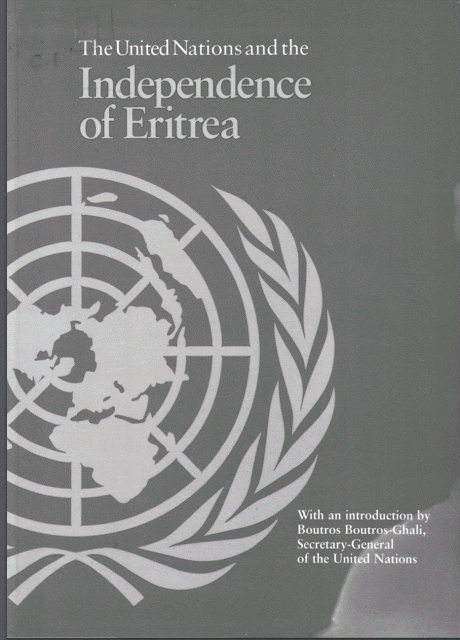The United Nations and the Independence of Eritrea, a 286 page book, published by the UN in 1996
"The military conflict between Ethiopia and Eritrea was one of Africa's longest struggles for independence and one of the world's most protracted campaigns for self-determination since the founding of the United Nations."
"On 27 April 1993, the Referendum Commission announced the official provisional results. Of those who had cast their votes, 1,098,015 had voted "yes" and 1,825 had voted "no"; 323 votes were invalid and 53,838 were tendered ballots, cast at a polling-station at which the voter was not registered. This meant that 99.805 per cent of those participating in the referendum had voted for independence, and only 0.17 per cent had voted against. Eritreans voting in Ethiopia, the Sudan and other countries, as well as members of the EPLA, had voted "yes", again with nearly total unanimity. "
https://digitallibrary.un.org/record/229464/files/%5BST_%5DDPI_1850-EN.pdf
---------------------------------------------------------------
Thanks to Habesah AGreat for sharing

